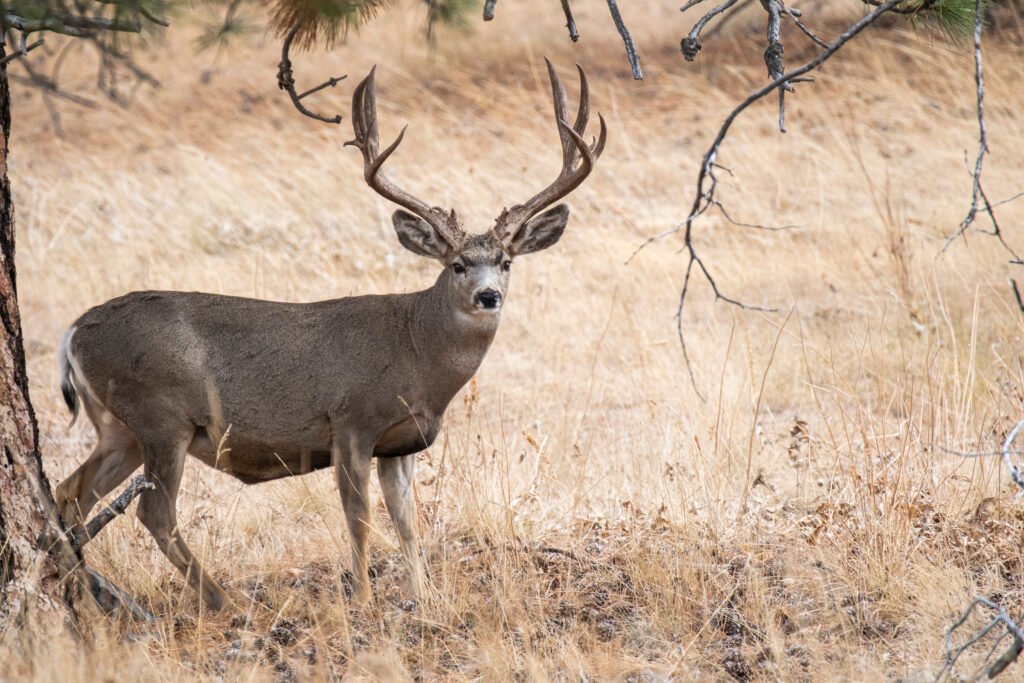Montana’s chapter of Backcountry Hunters & Anglers at present introduced that it raised a report $56,620 for mule deer conservation by raffling a single statewide deer tag. The winner is a Washington State hunter who purchased 5 probabilities at $20 apiece.
The entire raised within the two-month marketing campaign, which was closely promoted on BHA’s content material channels, is 38 p.c larger than the earlier report of $41,000 raised at public sale for Montana’s statewide mule deer tag.
The fundraising mechanism is a vital level of divergence right here. Montana is one in all many Western states whose wildlife commissions donate extremely coveted statewide big-game looking tags to conservation teams to promote. Cash from the transaction is plowed again into habitat and administration efforts to learn the respective species. Historically, these tags have been auctioned to the very best bidders, however the concept alternatives to pursue public wildlife are being offered to rich hunters and highest bidders conflicts with an expectation that wildlife is obtainable to all.
That’s one of many seven pillars of what’s come to be referred to as the North American Model of Wildlife Conservation. It means “that each citizen has the liberty to view, hunt and fish, no matter social or financial standing,” in keeping with the Boone and Crockett Membership’s explanation.
Reconsidering Tag Auctions
The auction-tag mannequin is into account in a variety of states. In March, shortly after the Western Hunting & Conservation Expo, the place most Western big-game tags are auctioned, Arizona’s Game and Fish Commission voted to abolish the state’s follow of auctioning big-game tags by 2026 because it considers “extra equable programs” for elevating funds necessary to trophy-species administration. However some who testified in favor of holding public sale tags, and the eye-popping income they increase for probably the most fascinating hunts, famous the trickle-down impact of permitting a single rich hunter to fund species-specific administration.
The Arizona Desert Bighorn Sheep Society pressured that of the $9.6 million raised for wild sheep conservation in Arizona over the previous 20 years, $6.8 million was generated by means of auctions, in comparison with $2.8 million raised by means of raffles. Funds from each sources are used to fund wildlife administration and habitat initiatives that always create further looking alternatives which might be democratically distributed within the state’s big-game draw.
“The truth that a handful of people stepped as much as put and maintain extra wild sheep on the mountain for everybody, and in the future put extra sheep permits into the general public attracts, is the definition of paying it ahead,” says Grey Thornton, president and CEO of the Wild Sheep Foundation, which set an auction-tag record for conservation permits at its conference in January. “That’s the spine of conservation.”
Montana’s statewide bighorn sheep license, it must be famous, offered at public sale to the very best bidder on the Wild Sheep Basis’s January “Sheep Present” for $380,000. That tag has raised $8.7 million for bighorn sheep administration in Montana since 1986.
A Gamble in Montana
Because it requested permission to raffle the Montana statewide mule deer tag, which permits the recipient to hunt in any unit within the state in archery, rifle, and muzzleloader seasons, BHA’s regional coverage supervisor Kevin Farron informed Montana’s Fish and Wildlife Commission that “the chance to hunt shouldn’t simply be for the rich.” The fee awarded BHA rights to dealer the tag by means of a raffle. It’s the primary time {that a} Montana conservation group has hosted an open raffle for a trophy tag, that are additionally provided for bighorn sheep, mountain goat, moose, and elk.
The tag was drawn final week (full disclosure: BHA requested me to help within the drawing) and the ticket quantity similar to a hunter recognized solely as Matt E. from Washington State was drawn.
In all, 1,317 people purchased $20 raffle tickets, in keeping with BHA’s Farron. A complete of two,831 tickets had been offered, and the typical purchaser purchased two tickets. Practically 12 p.c of ticket patrons had been Montana residents. Over 60 p.c of individuals purchased only one ticket; 76 p.c purchased two or fewer.
Learn Subsequent: Auction vs. Raffle Tags: Should States Stop Selling Big-Game Tags to the Highest Bidder?
“We expect that distribution is necessary,” stated Farron. “There was a threat {that a} single purchaser might are available in and purchase an enormous variety of tickets to swamp the pool, however that didn’t occur, which I feel helps make the case that probabilities had been equitably distributed. In reality, many individuals informed us that that they had no illusions of drawing the tag however merely needed to help this extra equitable mannequin for particular tags.
“The raffle, not like an public sale, wasn’t pushed by excessive rollers,” continued Farron. “Common, blue-collar hunters had a practical shot.”
The statewide looking tag wasn’t the one prize on supply within the raffle. Matt E. may even obtain $3,600 price of substances donated by Thriller Ranch, Weatherby, and First Lite — BHA company companions who “help this equitable strategy,” says Farron.
